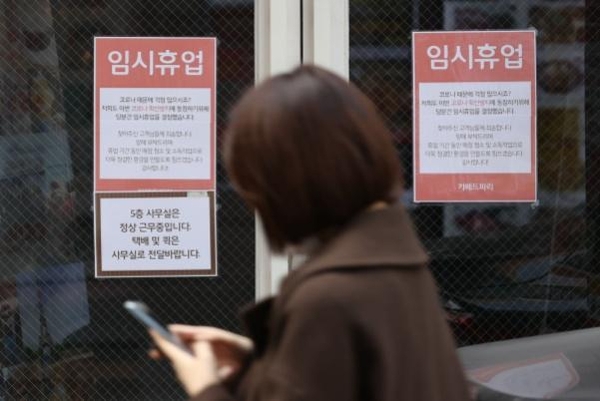Input 2020.12.29 17:30 | Revision 2020.12.29 17:34

A total of 11 businesses that are prohibited from collectively receiving 3 million won include indoor sports facilities such as academies and gyms, karaoke rooms, standing performance halls, ski resorts and sledding centers, direct sales promotion halls, and entertainment establishments (entertainment bars, Danran bars, Gamseong bars, Hunting Pocha, and Collate). It is an industry.
The group-restricted businesses that receive 2 million won are 11 businesses, including restaurants and cafes, beauty and beauty salons, PC cafes, game rooms and multi-rooms, study cafes, movie theaters, amusement parks, large supermarkets and department stores, and lodging. Although it is not a group prohibited or restricted business, it gives 1 million won to small business owners in general industries with annual sales of 400 million won or less, which decreased sales this year compared to last year.
After the announcement of the subsidies for each industry, karaoke and gym owners pointed out that the situation is on the verge of closing, but the subsidies are low and there is a problem with equity by industry.
Mr. Choi, 37, who runs a gym in Seoul, said, “The fixed cost of operating the gym reaches 10 million won per month.” “We regret that we provided 3 million won for rent in the situation where members can not open the door.” Said.
Mr. Choi said, “In the case of the restaurant business, it was possible to operate until 9 o’clock, and in many cases, we maintained profits through delivery.” Does it make sense to do it?” he raised his voice.

According to a report on the payment of the first emergency disaster support fund commissioned by the Korea Development Institute (KDI), the rate of closure and closure of karaoke rooms, golf driving ranges and DVD rooms increased 0.72 percentage points from 1.05% in the second quarter of last year to 1.77% in the second quarter of this year. . In the second quarter of this year, 784 out of about 44,000 were closed, and 309 more were closed or closed from the second quarter of last year (475).
Karaoke business owners have argued that it is desirable to provide retroactive support by dividing the level of damage rather than paying the disaster subsidies collectively according to the type of business.
Gyeonggi-seok, chairman of the Korea Coin Singing Range Association, said, “In the case of coin karaoke, it was closed for 140 days this year due to government guidelines.” Rather, it is necessary to subdivide the industry and pay selectively from the places that have suffered the most damage.”
